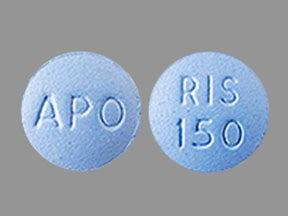My prescription
Edit
150MG, Risedronate (3 Tablets)
Select pharmacy

CVS
$46.63
COUPON PRICE
Walmart
$54.40
COUPON PRICE
Albertsons
$66.47
COUPON PRICE
Walgreens
$72.24
COUPON PRICERisedronate savings card
Show this card to your pharmacist
CVS
$46.63
BIN
ID
PCN
GRP
019876
LHA9FF31B4
CHIPPO
LHX
Powered by
More prescriptions for Paget's disease
More prescriptions for Paget's disease
Price history for Actonel (brand) & Risedronate (generic)
3 Tablets, 150MG
Average retail price for Actonel
Average retail price for Risedronate
Average SaveHealth price for Risedronate
Our price history data is based on aggregated prescription data collected from participating pharmacies in America. Our prescription data updates daily to reflect the latest price changes. If you notice a missing data point, it means there wasn't sufficient data available to generate a monetary value for that date.
We analyzed Risedronate prices for (150MG, 3 Tablets) over the last 12 months. The average retail price was $493.30, while the average price using the SaveHealth discount card was $53.58. That's a savings of approximately 89.14% when using our Risedronate coupon.
Compared to the generic version, Actonel had an average price of $1295.78 over the same time period. With the SaveHealth savings card, Risedronate is 95.87% cheaper on average than Actonel.
*Retail prices are based on pharmacy claims data, and may not be accurate when we don't have enough claims.
Risedronate dosage forms
Dosage Quantity Price from Per unit 5MG 30 Tablets $36.65 $1.22 5MG 90 Tablets $81.34 $0.90 30MG 30 Tablets $342.04 $11.40 35MG 1 Tablet $5.13 $5.13 35MG 4 Tablets $13.01 $3.25 35MG 12 Tablets $31.61 $2.63 150MG 3 Tablets $46.63 $15.54 150MG 1 Tablet $17.63 $17.63
| Dosage | Quantity | Price from | Per unit |
|---|---|---|---|
| 5MG | 30 Tablets | $36.65 | $1.22 |
| 5MG | 90 Tablets | $81.34 | $0.90 |
| 30MG | 30 Tablets | $342.04 | $11.40 |
| 35MG | 1 Tablet | $5.13 | $5.13 |
| 35MG | 4 Tablets | $13.01 | $3.25 |
| 35MG | 12 Tablets | $31.61 | $2.63 |
| 150MG | 3 Tablets | $46.63 | $15.54 |
| 150MG | 1 Tablet | $17.63 | $17.63 |

